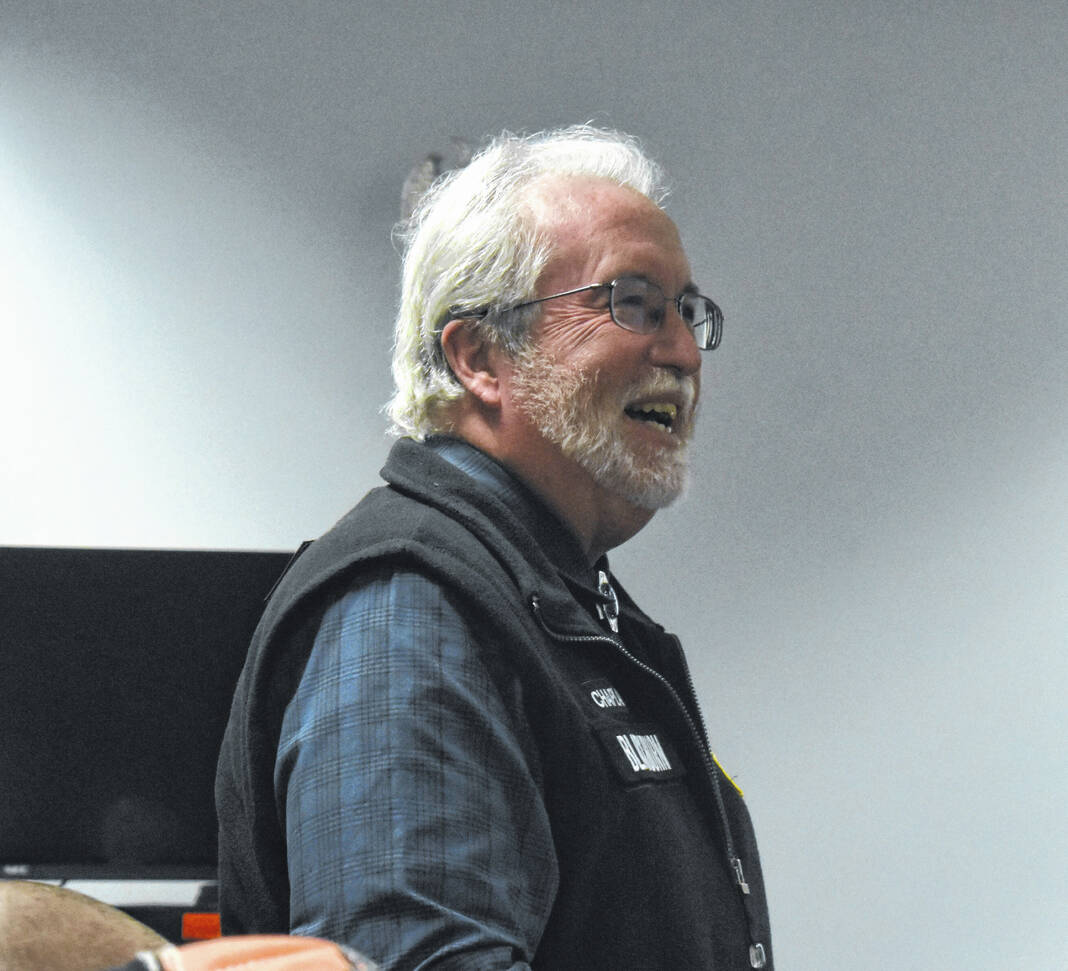
Tim Blackburn introduces himself at last Thursday’s Wilmington City Council meeting.
John Hamilton | Wilmington News Journal
WILMINGTON — Tim Blackburn became the Wilmington Police Department Chaplain recently and publicly introduced himself at last Thursday’s Wilmington City Council meeting.
He told the News Journal he’s hoping to bring what he learned from his prior experience as a police chaplain to Wilmington.
He and his wife moved to Wilmington after he retired from ministry duties at Grace Church in Racine, Wisconsin. They decided to move down so they can be closer to the kids and grandchildren who live in the Xenia/Beavercreek area.
“I got started with law enforcement back in 1978 when I was pastoring in Apple Valley, Wisconsin. I was involved with their police,” he said. “Then when we moved to the suburbs of Detroit, I helped start a chaplain program with their police.”
In 1989, he went through the Detroit Police Academy’s 16-week training program.
“They wanted to have a chaplain on the road,” he said. “We were there for the ten-hour days and they wanted us to learn along with the cadets. This was so they could know what a police officer is trained to do and how to respond to it.”
He told the News Journal that while duties for a police chaplain can vary between departments, he gave a rundown on what they generally do.
“Since this is a new venture for the Wilmington Police Department … this will evolve as time goes,” he said.
Often what a police chaplain does, according to Blackburn, is to be there for officers, first responders, and their families as they deal with stressful situations.
“Some think it may mean making death notices and I’ve done many of those in the past. But we’re also there to offer support for the community and police during those times as well,” he said. “My goal is not to become their pastor but to be there and help connect them with their faith community. There have been times when I was ministering for people who didn’t have a faith community.”
If there’s ever a crisis, he’ll show up to serve and let individual faith communities know what’s happening.
“I let them know if there’s been a crisis in their community and how they can provide ongoing support,” he said.
Another major duty he has is helping those who may have been traumatized in critical moments — particularly officers, first responders, and coworkers. He’s there to help defuse, debrief, and provide resources to those affected.
“They may come in a day or after and we have them talk through what they went through. Whether or not they’re sleeping okay, eating, and also see how they’re coping. We try to make sure they’re provided help when needed and to understand when their body tells them when they’re not coping well,” he said.
To highlight the importance of this work, he told the story of an evidence technician he knew while in Detroit.
“He had to deal with a very gruesome murder and had to deal with photo evidence,” said Blackburn. “He ended up saying he couldn’t take it and resigned,” he said.
Blackburn hopes that with his work, officers and first responders can make it to retirement both physically and mentally healthy, and enjoy it.
“Unfortunately, a lot of officers don’t retire healthy (mentally or physically). I can’t take away the trauma, but if I can provide the tools for them to deal with difficult times so they can reach retirement, that’s the goal I would have,” said Blackburn.

